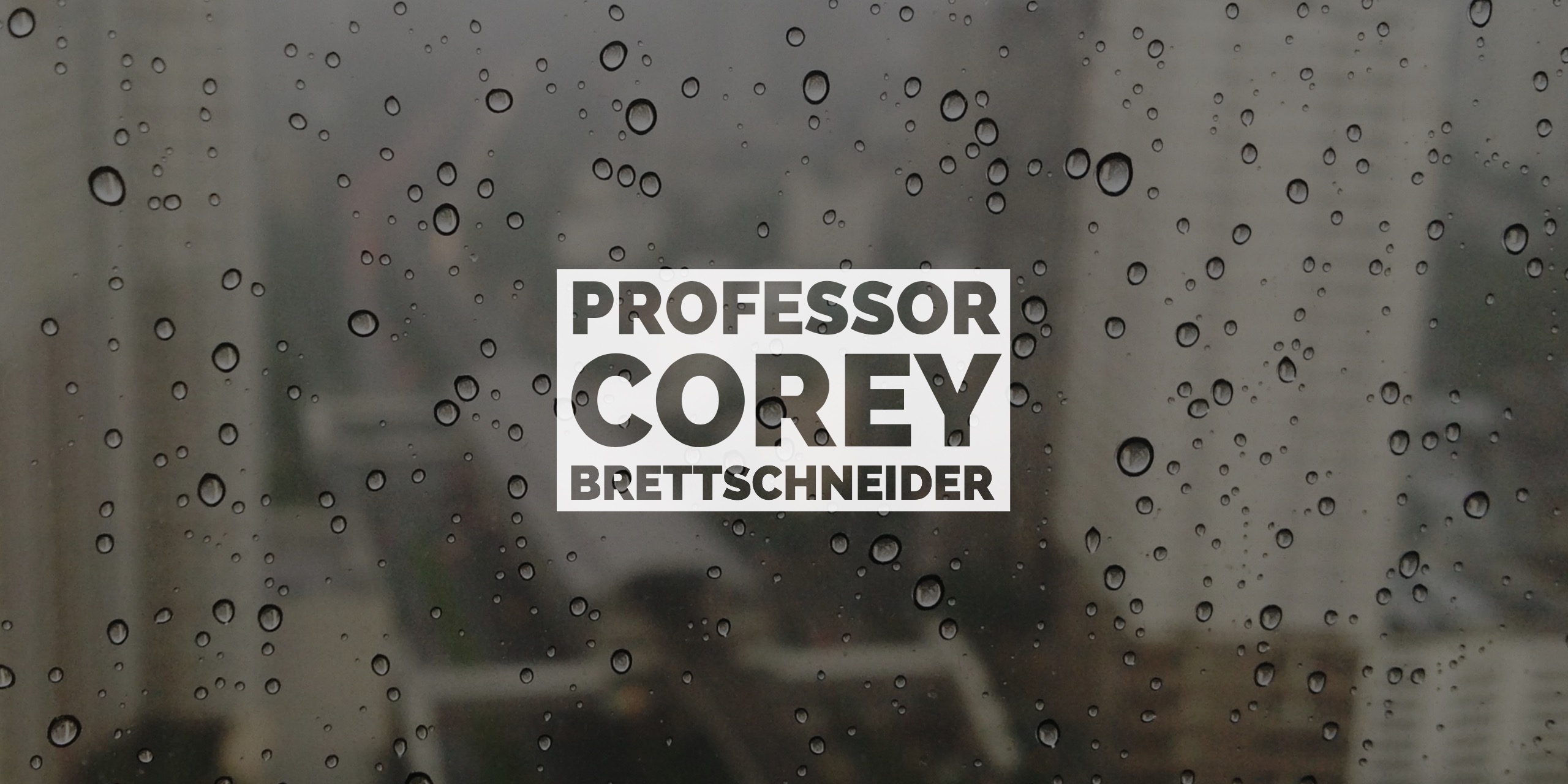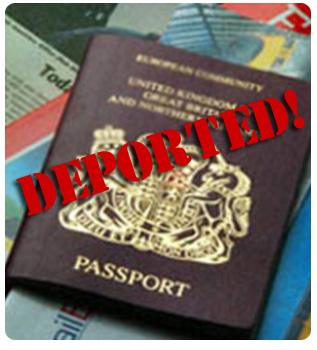
Constitutional Law Professor Corey Brettschneider on Trump’s executive order attempting to deny federal funding to sanctuary cities.
Listen to entire episode here:

Constitutional Law Professor Corey Brettschneider on Trump’s executive order attempting to deny federal funding to sanctuary cities.
Listen to entire episode here:

After four years in office President Obama deported more than 1.5 million immigrants, according to ICE. At this pace he will have deported more immigrants than any other president in American history, often separating mothers from their children.
We should also point out he is doing this when the great migration of undocumented workers into this country is declining due to increased job opportunities south of the border and fewer jobs here in the United States.
Our guest is Michael Kaufman, who is an attorney with the ACLU and he joins us from Los Angeles.
Listen to the original broadcast
David: In the American criminal justice system due process includes the right to a lawyer, and if we can’t afford a lawyer, one will be provided to us for free. Does that guarantee apply to America’s immigration court?
Michael Kaufman: Unfortunately, it does not. Immigration proceedings are considered similar in nature and the Sixth Amendment right to an attorney in your criminal proceedings does not apply as a rule in that context. And what that means is that the vast majority of people who face deportation charges go without a lawyer and are forced to face the immigration courts and a trained DHS, Department of Homeland Security prosecutor on their own.
Now immigration law is incredibly complicated. It’s been referred to as second only in complexity to the tax code, and we expect many immigrants who may have limited English ability, limited familiarity with the American legal system to fend for themselves in this incredibly complex area of the law. What I see time and time again in my work, is a lawyer can make all the difference between some being able to successfully argue that they shouldn’t be deported and those that can not.
Having that trained and skilled advocate on your side can help make a case to a judge that either the government was wrong, that you’re not deportable, or that you should be eligible for certain forms of relief because of the equities in your case.
And so we here at the ACLU have been working to try to ensure that more people have access to lawyers in immigration courts, because the consequences are so drastic. In some cases deportation is a far more severe penalty than anything you would face in criminal court.
David: They’re often separating mothers from children.
Michael: Certainly. Families get torn apart every single day. We see hundreds of families that are torn apart because of the enormous pace at which the Obama Administration is deporting individuals. People that have lived in the United State for their entire lives and may have committed no offenses or may have committed something very minor, but otherwise been a contributing member to their families, to their communities, to their society here in the United States, and yet we tear them out from their roots here in the United States and deport them for such minor offenses.
David: The ACLU here in California was instrumental in winning Rodriguez and has it resulted in the Obama Administration showing more compassion for immigrants.
Michael: Rodriguez is a class action that we brought here in southern California. Where we are trying to establish the right to every immigrant to have a bond hearing when their detention becomes prolonged, while their case is processed through the immigration courts. The government currently takes the position that certain categories of people can be detained mandatorily without any access to a bond hearing without the opportunity to simply ask a judge to be released while their case is in process.
So we brought this lawsuit asking for that most basic of due process guarantees, the opportunity to go before a judge and ask, just simply ask for the opportunity to be released. And we met with some success in the case. The district court has ordered the government to provide bond hearings to everyone in our class that they’ve been detained six months at a time. That rule is now being implemented across the Ninth Circuit, which covers pretty much the entire western United States.
Now what we’re seeing is people now finally have the opportunity to ask a judge for release, to be reunited with their families and their loved ones while their cases get processed, while they have to wait through the enormous backlogs at the immigration courts and in the appeals courts. It enables them, really, to be able to fight their case.
David: And what’s the Obama Administration’s stance on this ruling?
Michael: Unfortunately they’re currently appealing the decision to the Ninth Circuit Court of Appeals. We’ve asked the Obama Administration to take another look at this. The district court decision has been in force for over a year now, and the sky has not fallen.
All that’s happening is that the government’s own immigration judges are looking at people individually and deciding whether they’re dangerous or flight risks, whether they’re fit to be released in society. They’re releasing some people. They’re not releasing others, and the system is working really well.
And so we have asked the Obama Administration to take a second look at this, see that the system is working well, and not only to stop their appeal in this case and allow Rodriguez to continue in place. But to look at implementing it nationwide because what we’ve seen in California is that this works. Bond hearings are time tested and the immigration judges know how to make these types of assessments about who is too risky to be released and who should have the opportunity to be with their families while their cases are working their way through the immigration courts.
David: Michael Kaufman is an attorney with the ACLU. Thank you for your work.
Listen to the original broadcast
Should ICE be in the business of separating mothers from their children? I’d like to hear your thoughts. Please join the conversation below.

Miami police arrested Justin Bieber on January 24, 2014 for drunk driving, resisting arrest, and not having a valid driver’s license. Meanwhile 100,000 Americans have signed a petition asking President Obama to deport the Canadian citizen. For more on this we are joined by Michael Kaufman who’s an attorney with the ACLU, and he talks to us from Los Angeles.
Listen to the original broadcast
David Feldman: Michael, if you live long enough, eventually you’ll get to see Florida police actually do something right. Is Justin Bieber an American citizen?
Michael Kaufman: Justin Bieber was born in Canada. He’s a Canadian citizen and he’s here in the United States on a temporary visa.
David: Michael, in 2011 the Obama administration deported 33,927 immigrants convicted of driving under the influence. Now Justin Bieber is not a citizen. What normally happens to a non-citizen after he’s been arrested for drunk driving, and in Bieber’s case, resisting arrest and not having a valid driver’s license?
Michael: For somebody picked up on driving without a license, if you’re in the country unlawfully, when you’re booked into custody at a local police station, your fingerprints are run against the ICE database, and they may automatically request that the police department hold you so you can be transferred to ICE and put into deportation proceedings. This is part of a new program that’s been implemented under President Obama known as ‘Secure Communities’. And that’s had extraordinary draconian consequences.
It means anyone picked up for even minor violations, some of them as minor as driving without a license or even driving with a broken taillight, if they’re picked up and booked into custody, they potentially risk being deported from their home here in the United States and from their families.
Now that did not happen in Justin Bieber’s case. I’m not sure why. It may be because ICE doesn’t believe he is currently deportable based on the charges that were brought against him. But if he were, like those thousands of people that you mentioned, he would be put into ICE custody. He may be put in detention.
We have a sprawling network of immigration jails and prisons across the United States that hold, on any given day, about 34,000 people while their cases are being processed through the immigration courts and federal courts. And you can potentially remain in detention for months and years while your case winds through that complicated process.
David: Justin Bieber’s in this country legally.
Michael: That’s correct.
David: And when the Obama administration deports 33,927 immigrants in 2011 for driving under the influence, is it safe to assume most of them are in the country illegally?
Michael: As a general matter, driving under the influence is not a deportable offense. So if you are here lawfully, you can only be deported if you’re convicted of certain enumerated offenses. So DUI generally does not qualify as one of those, so it may be the case in those statistics that you reported that those were individuals that were in the country without legal status at that time.
However, there are certain circumstance, if you’re convicted of certain forms of aggravated driving under the influence, where that may qualify as what’s known as a crime of moral turpitude, which in certain circumstances can constitute a deportable offense.
Also there are many other minor offenses that Justin Bieber here could be charged with that would undoubtedly risk his deportation. So virtually any type of controlled substance violation.
David: And I did notice that they arrested the black rapper at his home for possession of cocaine, but they didn’t arrest Justin Bieber even though the black rapper was in his house at the time with the cocaine.
Michael: That’s right. That’s right. And that kind of charge, if he was charged with possession of cocaine, that would almost certainly render him deportable, and it would also subject him to what’s known as mandatory detention.
The government takes the position that if you’re convicted of any type of controlled substance violation, even something as simple as possession, and it’s your first time offense, they’re going to hold you in detention for the entire period of time it takes to process your case through the immigration courts. And that can be years in some cases. Simply because of that one violation that you have. They won’t allow you to ask for bond and they won’t allow you to be released under any circumstances.
David: I guess the elephant in the room is he’s an English-speaking white Canadian.
Michael: Absolutely. I mean, I think this is an important moment for us to reflect on what would happen to the thousands of other people who get picked up on minor charges, turned over to the police, and referred to the immigration system every single day. People who have been accused of far lesser crimes or maybe none at all, those people, because they do not have a raving fan base, access to high-priced attorneys, they routinely are processed through the immigration system, don’t know how to fight for their rights, and may end up getting deported and torn away from their families.
Justin Bieber of course is going to have excellent attorneys. They’ll know how to fight in the criminal process for charges that will not result in his deportation. Not everyone is so lucky. In fact, the vast majority of people don’t have access to attorneys to help them through that process, and get deported simply because they’re not like Justin Bieber. They don’t have access to attorneys. They don’t have money to afford one. And they see deportation as a result.
David: According to the ACLU, 84% of people held in America’s immigration detention system don’t have lawyers. Michael Kaufman is an attorney with the ACLU. Thank you for joining us, and thank you for your work.
Listen to the original broadcast
Should Bieber be deported? I want to know what you think. Please join the conversation below.